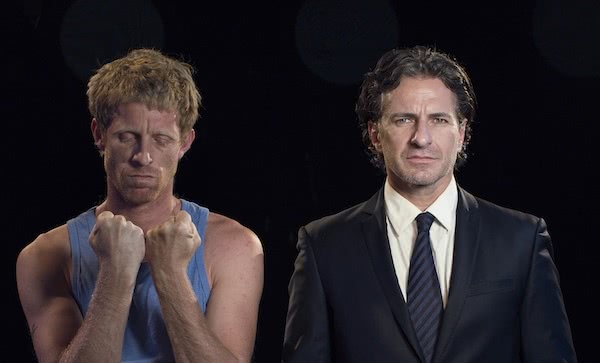“All of my plays have been about things that people don’t want to face or are challenging – things that get brushed under the carpet. I’ve always been attracted to writing things like that.”
Writer-director Sarah Doyle is not one to shy away from serious conversation starters. Her play Anaconda uses the 2000 Trinity Grammar sexual abuse scandal as contextual framework to explore questions of morality, the nature of responsibility and the damage guilt can cause when the past is buried. A “massive fan” of Harold Pinter and Edward Albee, she is fascinated by what is unacknowledged and the residual impact of trying to ignore the past, a quality Doyle describes as “this sort of very real feel but really fucked up shit happens. Like nice, lavish living room – uh oh! What aren’t they talking about?”
Graduating from Meridan, the sister school of Trinity two years before the scandal broke, meant it was something Doyle was always aware of, but it wasn’t until she was in the US at the time the Penn State child sex abuse scandal was in the news that she began to look into it. Still, the situation is not necessarily something that immediately jumps out as a great idea for a play. “The Penn State scandal was in the papers in the States while I was there … I knew a lot of people who went to Trinity, so around that time in January last year I started to research it. Every time I found out more about it, it confounded me more. At first I was thinking about using that situation for another thing I was writing, but then it became so big and so fascinating, my thoughts were, ‘yeah, who would want to watch a play like this because it’s so full on,’ but then I just thought well, everyone.”
After talking with various parties, she began to pull everything together. “Once I had more information I created four characters and just started to write, and wondered, ‘if it did come out, how would it come out? What would it be like to face your monster, your Frankenstein?’” But while there’s some real inspiration, Doyle’s adamant that the play is just a story. “These characters are all fictional. The situation they came fro is what’s true. The culture surrounding it is what I drew from the truth and the backstory.”
Anaconda doesn’t shy away from big questions of morality either, there’s the character of the bystander’s wife played by Leeanna Walsman, who Doyle says “has to get her head out of the sand and face the truth, because they have this complicity in their lie too. They never talk about why he left the school, they don’t want to go there. It’s easier to just stay silent about it.”
The play, which was nominated for Best International Show at the Hollywood Fringe last year, will be returning home for it’s Australian debut next month. Anaconda’s run at Rock Surfers Theatre Company gave Doyle the opportunity to expand the play from the stripped bare Black Box version that ran overseas to something more large scale, design-wise. With assistance from former Cyndi Lauper tourmate Max Sharam, who is bringing a pop-opera aesthetic to the production, the key is non-literal with Doyle pulling influences from Bauhaus, which allows for deeper exploration of the play’s psychological undertones.
“It’s quite confronting to be honest, but that’s the point.” And Doyle is committed to moving past the stigma that’s often attached to discussion (or lack thereof) of abuse. “It’s all about creating a dialogue – about abuse, about the aftermath, about what can be done to improve as a community. I think we’ve come leaps and bounds, but there’s further to go.”
BY NATALIE AMAT
Anaconda presents at The Bondi Pavilion Theatre from November 1-23.


































